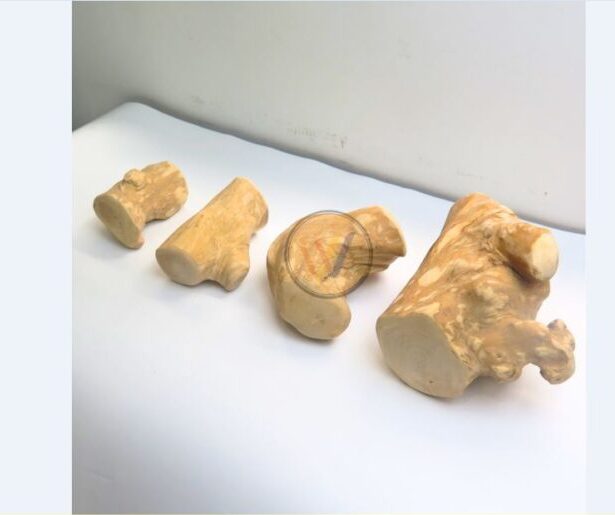BLOG
Environmental Impact Comparison: Gorilla Chew Toys
Environmental Impact Comparison: Gorilla Chew Toys vs. Other Chew Toys
As awareness about environmental issues grows, choosing toys for pets involves more than just quality and safety—it also includes considering the environmental impact of the product. In this article, we’ll explore the differences between Gorilla chew toys, made from natural coffee tree wood, and other chew toys made from plastic or rubber.
Choosing Eco-Friendly Options for Your Pets: The Joy of Gorilla Chew Toys
When it comes to our furry companions, we want to provide them with the best toys that keep them entertained and engaged. But have you considered how your choices can also benefit the planet? Choosing eco-friendly options for your pets is a fantastic way to show love not just for them, but for the Earth as well! One exciting option that’s gaining popularity is Gorilla Chew Toys. These durable, non-toxic toys are made from sustainable materials, ensuring your pets can play safely while you do your part to reduce environmental impact.
Gorilla Chew Toys: Natural Coffee Tree Wood
1. Environmentally Friendly
Gorilla chew toys are made from natural coffee tree wood, a smart recycling material. After coffee trees complete their harvest season, the tree trunks are often discarded or burned. Instead of wasting this material, using coffee tree wood for toy production helps sustainably utilize this resource.
2. Reduced Pollution Impact
Products made from coffee tree wood decompose naturally in the environment without releasing harmful waste. This is in contrast to plastic and rubber, which are difficult to decompose and can cause serious pollution. The decomposition of Gorilla chew toys is less harmful and helps maintain ecosystem balance.
3. Resource Protection
Reusing coffee tree wood helps minimize the need for new resource extraction. Instead of producing plastic or rubber, utilizing coffee tree wood protects natural resources and reduces environmental pressure. This is a prime example of the circular economy—where products are recycled and reused to minimize waste and resource consumption.
4. Impact on Soil and Water
Natural coffee tree wood does not pollute soil or water. In contrast, plastic and rubber products can release toxic chemicals when they decompose or break down, affecting soil and water quality. This can harm wildlife and human health.
Plastic and Rubber Chew Toys: Environmental Issues
1. Non-Biodegradable Waste
Plastic and rubber toys are highly durable but very difficult to decompose. Chew toys made from these materials can last for hundreds of years in the environment before fully breaking down, and during this time, they can release harmful chemicals into soil and water.
2. Resource and Energy Consumption
The production of plastic and rubber requires significant amounts of energy and natural resources. This not only contributes to resource depletion but also increases carbon emissions, contributing to climate change. Compared to using coffee tree wood, producing plastic and rubber has a much greater environmental impact.
3. Ocean Pollution and Ecosystem Damage
Plastic and rubber can break into small particles, which are easily carried into oceans. These microplastics can be ingested by marine animals, harming their health and damaging marine ecosystems. This is particularly concerning given that millions of tons of plastic and rubber are flooding our oceans.
4. Risks to Wildlife
Plastic and rubber chew toys that break or tear can create sharp fragments that pose risks to wildlife and pets. These small pieces can be ingested, leading to severe health issues such as gastrointestinal blockages or infections.
Conclusion
When comparing the environmental impact of Gorilla chew toys and those made from plastic or rubber, the differences are significant. Gorilla chew toys, made from natural coffee tree wood, help reduce waste and pollution while protecting natural resources. This is a far more sustainable and environmentally friendly option compared to plastic and rubber products.
Choosing toys for your pets not only involves selecting the best product for them but also making a decision that impacts the health of our planet. By supporting environmentally friendly products like Gorilla chew toys, you contribute to protecting the planet and creating a more sustainable future for future generations
WINVN INT CO., LTD
Natural joy made in Vietnam
☎️ +84 932 118 447
📧 info@winvnint.com
🌐 winvnint.com
🌐 https://winvnint.trustpass.alibaba.com/
📌 29, 29 Street, Van Phuc Residence, Thu Duc City, Ho Chi Minh City, Vietnam
 Tel: (+84) 932 118 447
Tel: (+84) 932 118 447  Email: info@winvnint.com
Email: info@winvnint.com 










